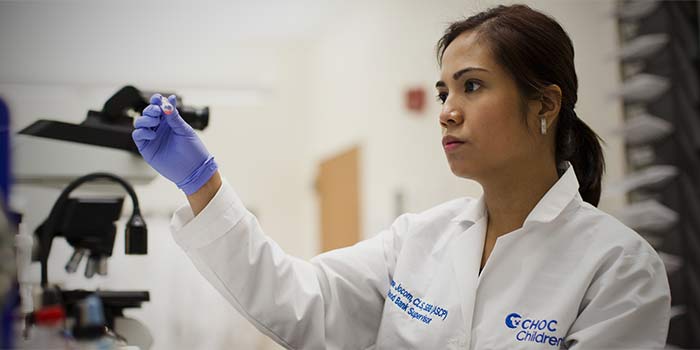Home » Articles » Pediatric Cancer Research and Clinical Trials: How Treating Cancer is Changing
Pediatric Cancer Research and Clinical Trials: How Treating Cancer is Changing
Cancer Research and Clinical Trials
- A clinical trial is a research study that aims to determine the most effective treatment for a particular disease.
- Clinical Trials are conducted in “phases,” with the earliest research of the use of a new treatment being “Phase 1.”
- Access to Phase 1 trials means patients are able to receive the very latest research-based treatments before they are available in most other hospitals in the country.
- Each trial is a result of a very detailed study of factors associated with the most current standard treatment and variables that may lead to an improvement in survival rates or a reduction in side effects or late effects of treatment. (Late effects are side effects of treatment a patient experiences later in life.)
- The Hyundai Cancer Institute at CHOC Children’s is a member of the Children’s Oncology Group (COG) and has received a prestigious Phase 1 clinical trial designation.
- There are only 21 facilities in North America with a COG Phase 1 clinical trial designation.
Treating Pediatric Cancer with Precision Medicine
- Recent groundbreaking cancer research and clinical trials are exploring the use of precision medicine and genomics to cure cancer.
- Precision medicine refers to the tailoring of medical treatment to the individual genetic characteristics of each patient’s disease.
- Precision medicine has had its earliest success in cancer research and therapies, especially pediatric cancers.
- For more than a decade, the cure rate for pediatric cancer has been at about 80 percent. Experts are hoping to use precision medicine and genomic profiling to target and cure the other 20 percent.
- In recent years, tumor profiling has become a valuable tool for oncologists when making treatment decisions for patients with recurrent (relapsed), or difficult‐to‐treat (refractory), rare and aggressive childhood cancers.
- Decoding genomic data from a tumor, and combining that information with a clinical strategy to optimize the immune system, we can provide personalized information to aid new treatment options.















